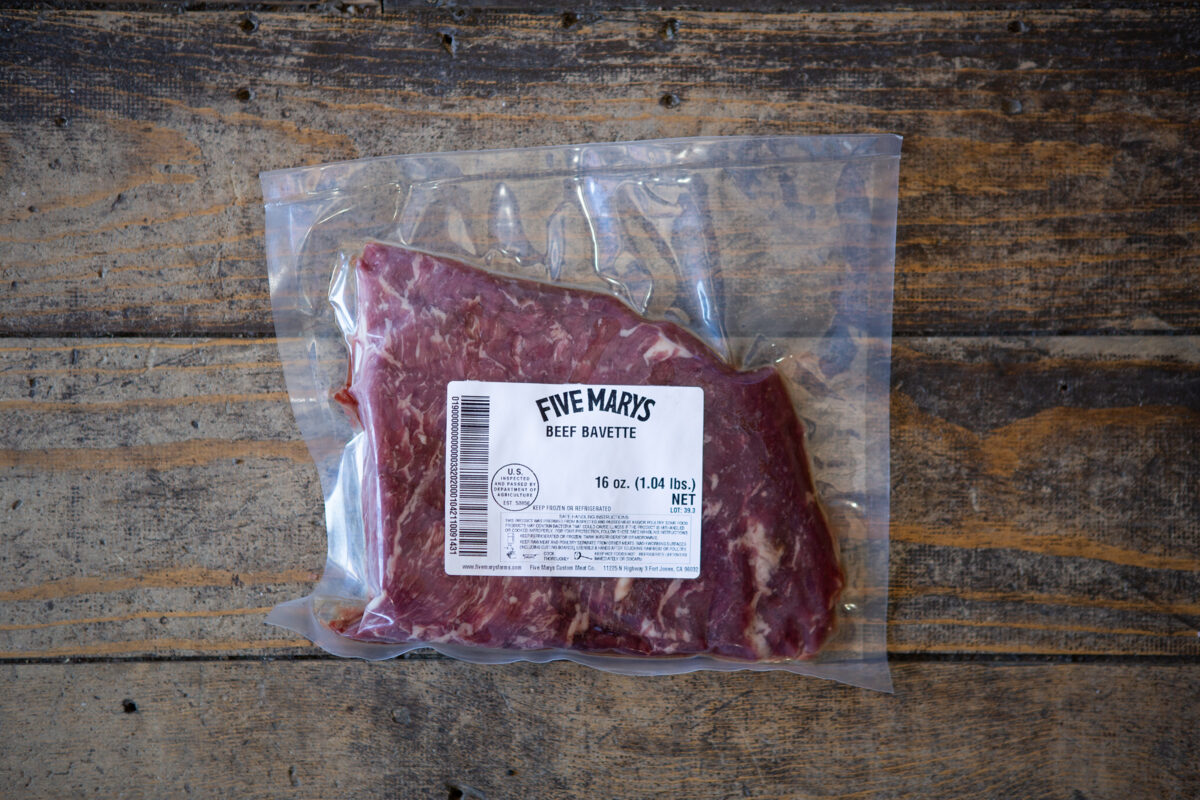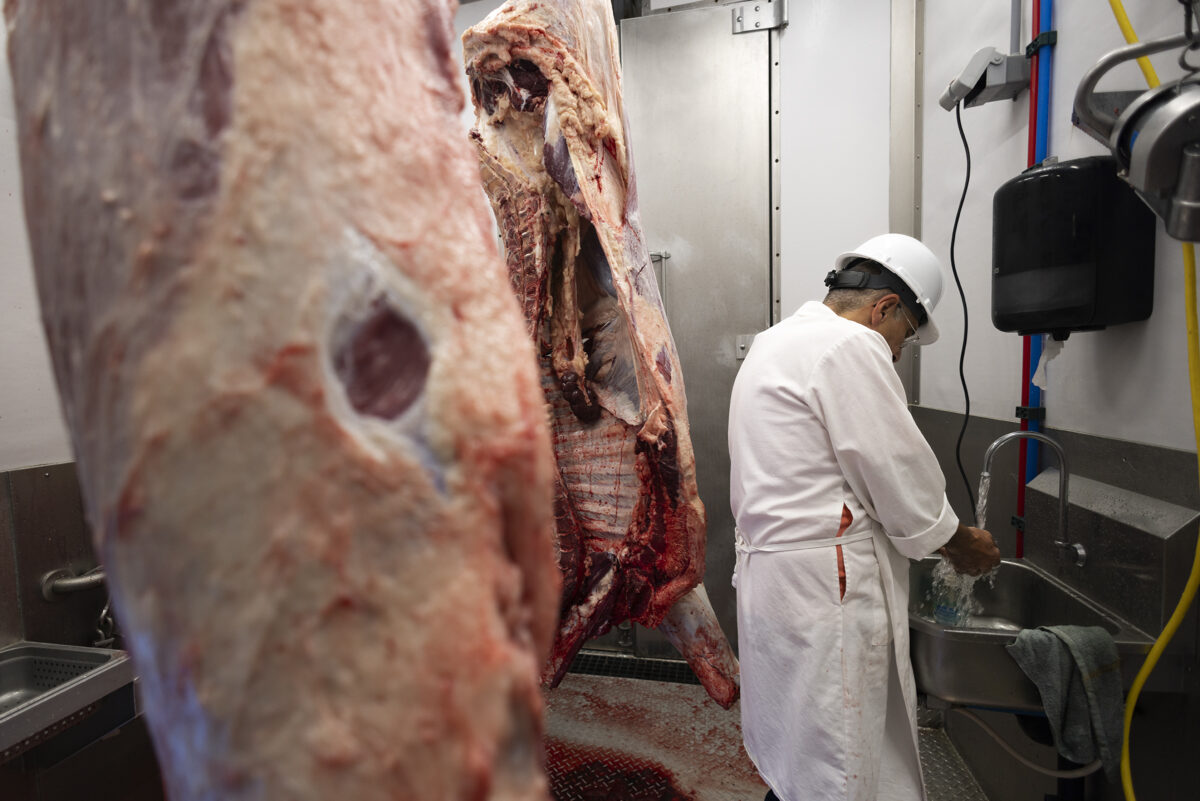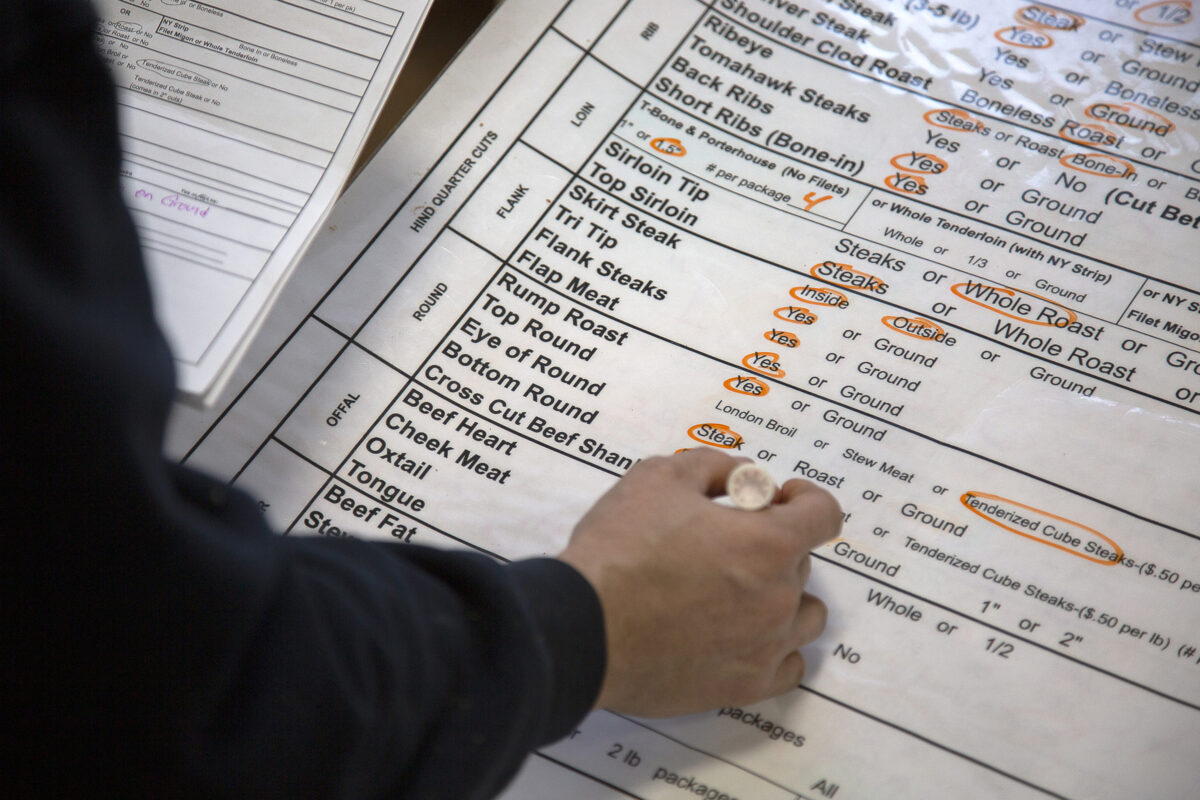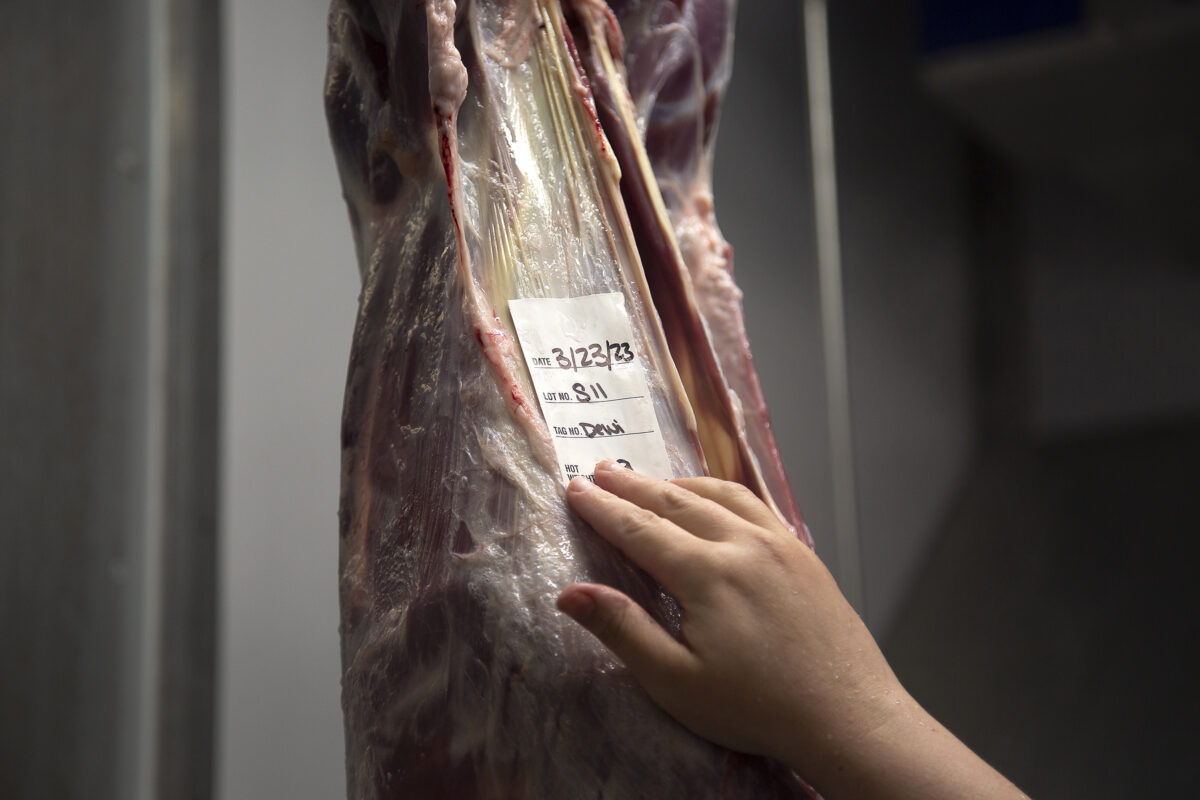There are many steps to moving a finished animal from pasture or feedlot to steak on a plate. The U.S. Department of Agriculture (USDA) regulates these processing steps through its Food Safety and Inspection Service (FSIS). FSIS is responsible to ensure that the meat and poultry sold in the U.S. is correctly labeled and safe for humans to eat.
All meat processing plants need to comply with the regulations under FSIS oversight1:
- Federal Meat Inspection Act (FMIA) or Poultry Products Inspection Act (PPIA)
- Humane Methods of Slaughter Act (HMSA)
This begs the question: what are the types of inspection for meat processors? There are four inspection statuses that meat processing facilities can pursue: Federal Inspection, State Inspection, Custom Exempt, or Retail Exempt. The ideal inspection type will differ for each local meat processing business based on their customer types, operation size, and geographic area they serve.
FEDERAL INSPECTION
Federal inspection status provides a meat processing business with access to the largest and least restricted sales market. Meat from federally-inspected processing plants can be sold across U.S. state lines and internationally.

Federally-inspected meat processing plants must maintain and follow Sanitation Standard Operating Procedures (SSOP), Hazard Analysis and Critical Control Point (HACCP), and recall plans. Facilities operating under Federal inspection must have USDA inspectors onsite during livestock slaughter. Their operations can range from slaughter to processing or both.

During slaughter, the USDA food inspector:
- Verifies humane animal handling
- Inspects livestock to ensure each animal is fit for slaughter
- Conducts a post-slaughter inspection to ensure the meat is fit for human consumption
- Ensures the facilities are maintaining sanitary conditions
- Reviews records and documentation to confirm regulatory compliance
STATE INSPECTION
A state inspection status allows a meat processing business to sell meat within the state in which it was produced, but not across state borders or internationally. One exception is if the state and the plant both participate in the Cooperative Interstate Shipment (CIS) program, which allows select state-inspected meat to be shipped across state lines.
State inspection programs are required by the 1967 Wholesome Meat Act to be “at least equal to” the regulatory rigor of Federal Inspection1. Each state program is reviewed annually by FSIS to determine if it meets regulatory standards.
Today, 29 states operate their own meat inspection programs. If a state chooses to discontinue their inspection program or can’t maintain the required standard, FSIS assumes responsibility for inspection in the state1.
CUSTOM EXEMPTION
A personal or individual use exemption—commonly known as custom exempt processing—allows a business to slaughter and process livestock or poultry without a Federal inspection, solely for the livestock owner’s use3. Custom exempt facilities are subject to periodic, risk-based inspection by USDA FSIS or state authorities.
Under custom exempt processing, slaughter can be performed on-farm or ranch using a USDA-compliant Modular or Mobile Modular Harvest Unit or at a brick and mortar facility2. The resulting product cannot legally be sold and must be marked “not for sale.” All product harvested from the exempt animal must be returned to the original owner, who can consume it along with members of the owner’s household, non-paying guests, or employees4. In other words, custom exempt product can’t be resold in individual cuts or packages.

RETAIL EXEMPTION
Under a retail exemption, a retail store, restaurant, or other similar establishment can sell meat and meat food products to consumers without a Federal inspection4. Retail exempt businesses cannot slaughter livestock—the meat sold must come from a federally-inspected plant or state-inspected plant in the facility’s same state.
Retail exemption regulations for meat and poultry products were implemented in the 1970s. Grocery store and restaurant models and operations have evolved significantly since these regulations were established, and regulations may be altered or updated4. Retail exempt locations may be periodically inspected by the USDA or state regulators.
MAKING THE CALL
As a new meat processor or existing plant expanding your operations, sorting through inspection options can feel intimidating. Find a guide to help you cut through the red tape. Learn more about Friesla’s Ecosystem of Services or connect with us here.
